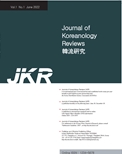- 권한신청
- E-ISSN2950-8835
A Study on the History of Environmental Policy in South Korea
Abstract
International negotiation and cooperation for sustainable development currently emphasize three themes on which environmental policies are developed. South Korea emphasizes two of the three themes; climate change and the 2030 Agenda for Sustainable Development. South Korea has taken a leadership role in the international arena regarding these topics, actively participating in the United Nations Framework Convention on Climate Change (UNFCCC) and the negotiations for the 2030 Agenda (Jung, 2018). South Korea has taken a number of steps to address climate change, both domestically and internationally. Domestically, it has implemented several policies and methods to lessen GHG emissions and transition to a low-carbon economy. It has implemented an Emissions Trading Scheme, the largest in the world, a renewable energy portfolio standard, and aimed at accomplishing carbon neutrality by 2050. South Korea is also actively involved in executing the Sustainable Development Goals (SDGs) and has established a national committee to ensure their successful implementation. The group is made up of representatives from the private sector, government ministries, and civil society organizations. It is focused on monitoring the progress of the SDGs and providing policy and financial support for their implementation.
- keywords
- Environmental History, Environmental Policy, Sustainable Utilization
- 다운로드 수
- 조회수
- 0KCI 피인용수
- 0WOS 피인용수














